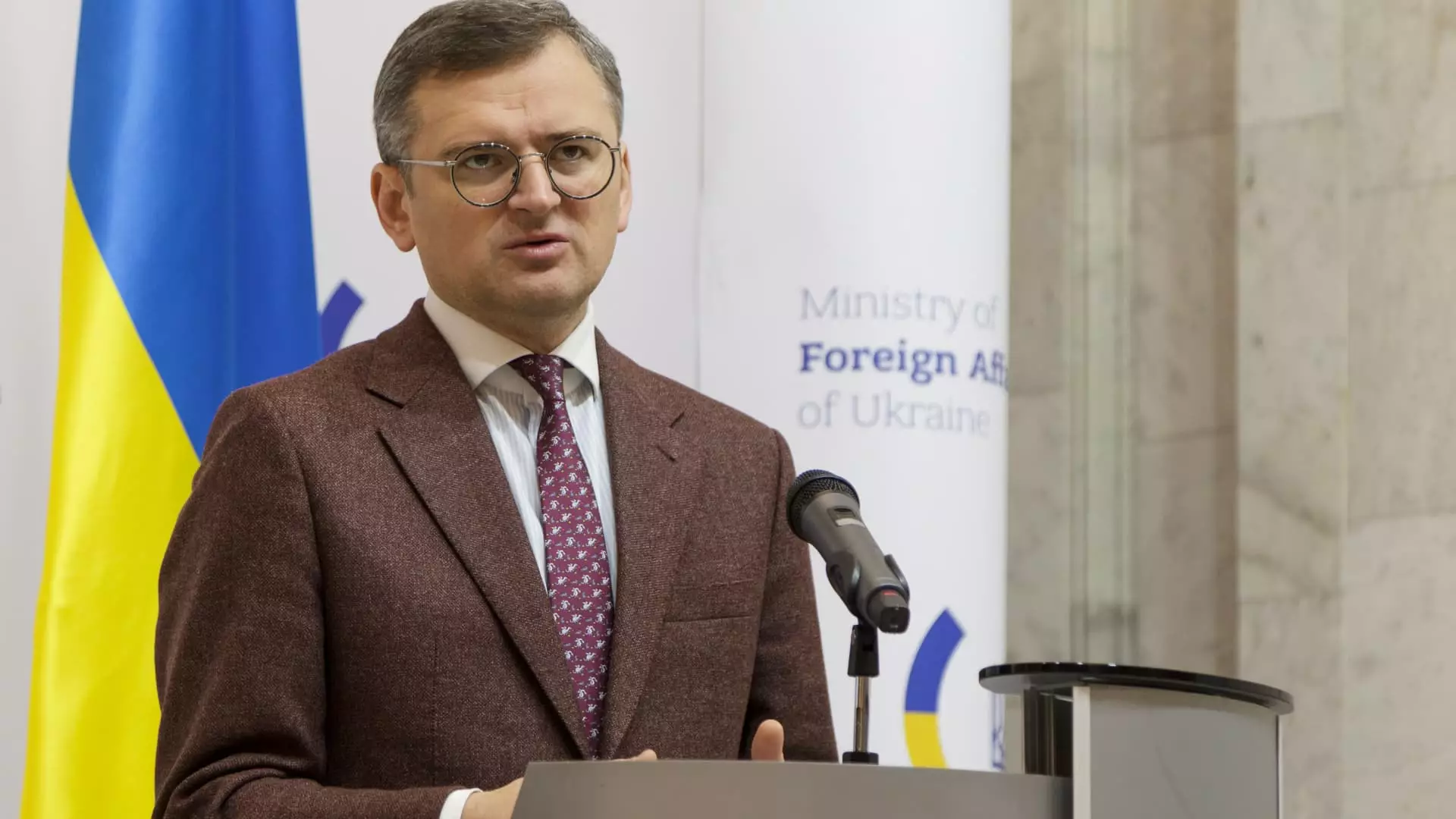The urgency surrounding Ukraine’s defense against Russian aggression has reached a critical point, underscoring a dire warning from former Ukrainian Foreign Minister Dmytro Kuleba. In statements made to CNBC, Kuleba articulated the stakes not only for Ukraine but for the entire European continent. His assertion that “if Ukraine fails, war will come to the streets of European cities” paints a grim picture for the region. The fallout from a Ukrainian defeat could unravel decades of security and peace in Europe, redefining the political landscape much in the same way that World War II did.
As Russia continues to exert its influence and military power, Kuleba remarked on the current limitations of Vladimir Putin, noting that while the Russian leader lacks the resources to engage in multiple conflicts simultaneously, the potential for escalation remains. This is a crucial understanding that many policymakers must grasp: the conflict is not limited to Ukraine but may very well broaden its scope, threatening European nations directly if bold measures are not taken to deter Russian advances.
The pressing issue of NATO membership for Ukraine emerges as a pivotal topic in Kuleba’s discourse. The former foreign minister’s perspective is clear; while various discussions might entertain the idea of putting membership on hold to achieve a temporary ceasefire, this would only serve as a Band-Aid solution. Kuleba argues that the absence of NATO’s full embrace would leave Ukraine vulnerable, merely postponing the inevitability of a renewed conflict. Security guarantees, while helpful, do not equate to the robust protection that NATO membership would afford.
Kuleba’s insights reveal the complexities surrounding Ukraine’s desire for NATO membership, which is contingent upon the unanimous approval of existing member states. This underscores the geopolitical chess game currently at play, where each nation must weigh not just moral obligations but also geopolitical ramifications. As the balance of power shifts, the resolve and unity of NATO members will be tested, especially against the backdrop of changing leadership within key member countries, notably the anticipated return of Donald Trump to the U.S. presidency.
The dynamics at play involve more than military strategies; they extend into the realm of diplomacy and leadership. Kuleba stressed the importance of engaging directly with the Kremlin, calling for diplomatic pressure on Putin to negotiate a peace settlement genuinely. In this regard, the approach that global leaders take in addressing the Ukraine situation is crucial. The recent discussions between President Zelenskyy and Trump highlight both the possibility and the fragility of peace negotiations.
The recognition that significant political maneuvers must occur in Moscow, rather than Kyiv, shifts the narrative of responsibility. With leaders like Trump criticizing Biden’s policies that allow for deeper military engagement in Ukraine, the discourse shifts towards finding common ground while resisting Russian aggression. As Kuleba insightfully remarked, “The key to peace lies in Moscow,” reinforcing the notion that resolving the Ukraine crisis necessitates a robust bilateral dialogue.
Amidst the back-and-forth of international diplomacy, Kuleba’s remarks underline an important theme: action must overshadow inaction. He asserted that Ukraine cannot afford to remain passive as aggressions escalate; it must respond decisively. This resolve reflects the broader sentiment that a failure to confront the enemy head-on would result in greater losses. The brutal reality is underscored by recent attacks on Ukraine’s energy infrastructure, which serve as a reminder of the persistent threat posed by Russian military operations.
The onslaught of drone strikes and missile attacks epitomizes a concerted effort to undermine Ukraine’s sovereignty and resilience. The international community can no longer afford to be complacent; they must leverage their influence to bolster Ukraine’s defenses and ensure its territorial integrity.
As Kuleba’s urgent warnings echo across the continent, the way international leaders respond will shape the future stability of Europe. The specter of war looms large, urging not only Ukrainian resolve but a unified European front. The stakes are high: a defeated Ukraine could signal a fresh chapter of aggression for Russia, emboldening its ambitions and perpetuating cycles of conflict. The time for action is now; Europe’s peace and unity depend on the choices made today.


Leave a Reply